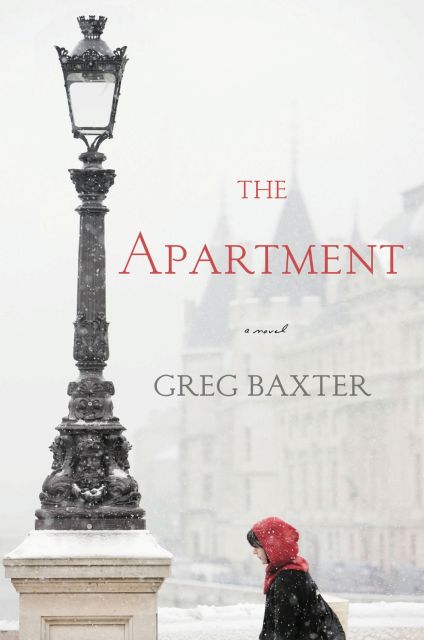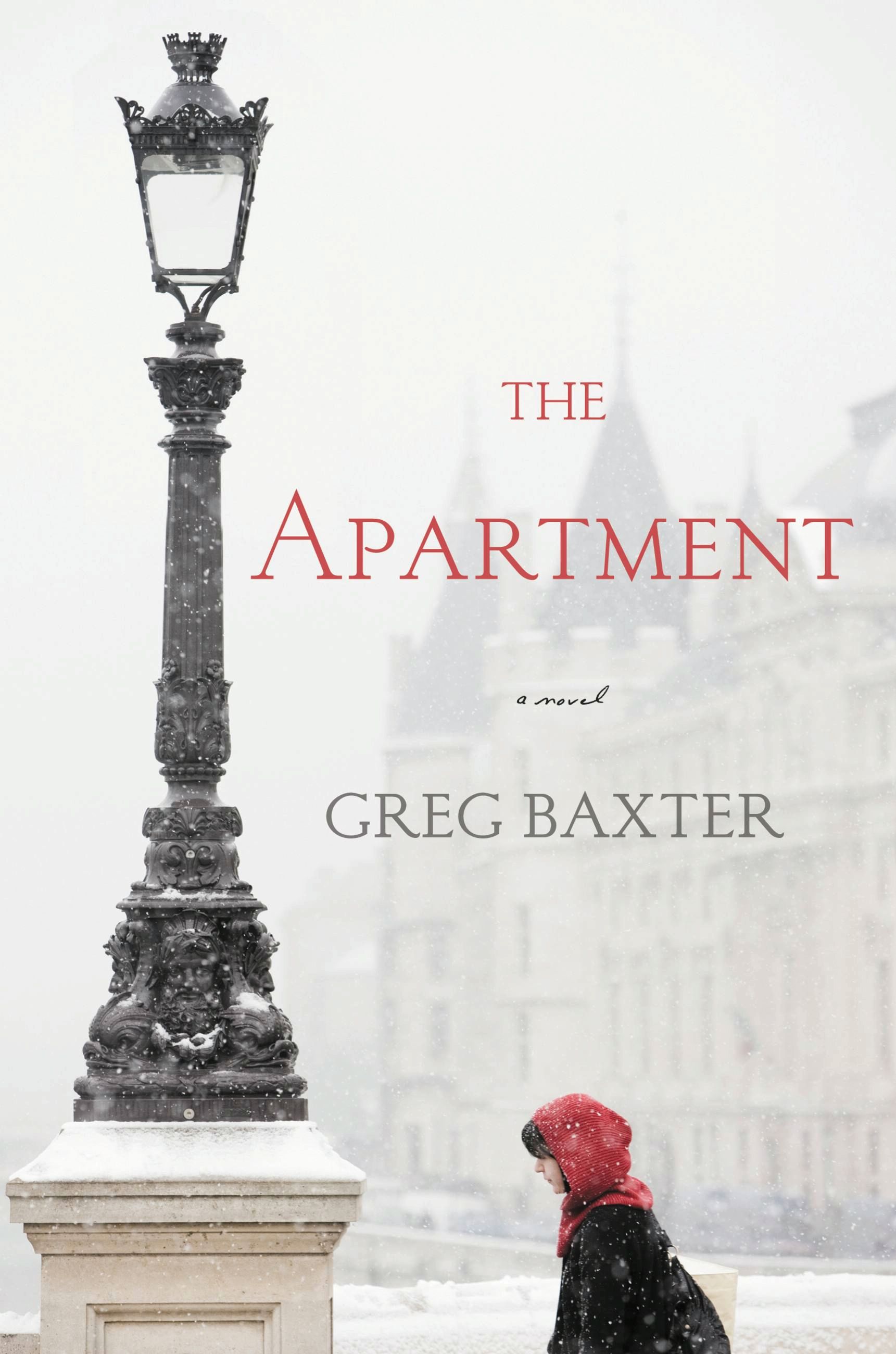By clicking “Accept,” you agree to the use of cookies and similar technologies on your device as set forth in our Cookie Policy and our Privacy Policy. Please note that certain cookies are essential for this website to function properly and do not require user consent to be deployed.
The Apartment
A Novel
Contributors
By Greg Baxter
Formats and Prices
- On Sale
- Dec 3, 2013
- Page Count
- 208 pages
- Publisher
- Twelve
- ISBN-13
- 9781455547715
Price
$9.99Price
$12.99 CADFormat
Format:
- ebook $9.99 $12.99 CAD
- Audiobook Download (Unabridged)
- Trade Paperback $15.00 $17.00 CAD
This item is a preorder. Your payment method will be charged immediately, and the product is expected to ship on or around December 3, 2013. This date is subject to change due to shipping delays beyond our control.
Buy from Other Retailers:
A powerful and elegant debut novel about love, memory, exile, and war.
One snowy December morning in an old European city, an American man leaves his shabby hotel to meet a local woman who has agreed to help him search for an apartment to rent. The Apartment follows the couple across a blurry, illogical, and frozen city into a past the man is hoping to forget, and leaves them at the doorstep of an uncertain future-their cityscape punctuated by the man’s lingering memories of time spent in Iraq and the life he abandoned in the United States. Contained within the details of this day is a complex meditation on America’s relationship with the rest of the world, an unflinching glimpse at the permanence of guilt and despair, and an exploration into our desire to cure violence with violence.
A novel about how our relationships to others-and most importantly to ourselves-alters how we see the world, The Apartment perfectly captures the peculiarity and excitement of being a stranger in a strange city. Written in an affecting and intimate tone that gradually expands in scope, intensity, poetry, and drama, Greg Baxter’s clear-eyed first novel tells the intriguing story of these two people on this single day. Both beguiling and raw in its observations and language, The Apartment is a crisp novel with enormous range that offers profound and unexpected wisdom.
One snowy December morning in an old European city, an American man leaves his shabby hotel to meet a local woman who has agreed to help him search for an apartment to rent. The Apartment follows the couple across a blurry, illogical, and frozen city into a past the man is hoping to forget, and leaves them at the doorstep of an uncertain future-their cityscape punctuated by the man’s lingering memories of time spent in Iraq and the life he abandoned in the United States. Contained within the details of this day is a complex meditation on America’s relationship with the rest of the world, an unflinching glimpse at the permanence of guilt and despair, and an exploration into our desire to cure violence with violence.
A novel about how our relationships to others-and most importantly to ourselves-alters how we see the world, The Apartment perfectly captures the peculiarity and excitement of being a stranger in a strange city. Written in an affecting and intimate tone that gradually expands in scope, intensity, poetry, and drama, Greg Baxter’s clear-eyed first novel tells the intriguing story of these two people on this single day. Both beguiling and raw in its observations and language, The Apartment is a crisp novel with enormous range that offers profound and unexpected wisdom.
-
"Clever, entertaining, brave, it stretches the rules while following a man through one day of his life. I loved it."Roddy Doyle
-
"Exceptional--a book rich in ideas and poetry."Hisham Matar, Man Booker Prize finalist for Country of Men
-
"Imagine you're on a roller-coaster ... suddenly, without warning, it tips vertiginously, so quickly that your chest constricts and while you're there, suspended, momentarily, at the apex of this roller-coaster, you're aware suddenly of a kind of clarity, a totally new perspective on everything below. Greg Baxter's THE APARTMENT is a bit like this ... Full of unshowy wisdom and surprising moments of beauty.Sunday Telegraph
-
"Stunningly good."Saturday Review, BBC Radio 4
-
"Admirable for its scope, ambition and unashamed seriousness of purpose, as well as its willingness to take stylistic and structural risks."Observer
-
"Baxter's superbly elegant, understated writing explores the dynamics of America's relationship with the rest of the world."The Times
Newsletter Signup
By clicking ‘Sign Up,’ I acknowledge that I have read and agree to Hachette Book Group’s Privacy Policy and Terms of Use







